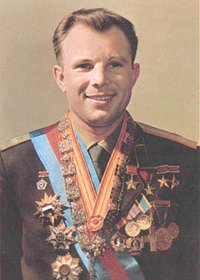Interesting to read this article from TechnologyReview. It is about the political power of engineers in US and the world. According to the article, there are only a few engineers in U.S. Senate and the House. But the reverse is true in other parts of the world, specially in USSR, and middle east. It is true for my country (Iran/Persia) that there are many engineers who is doing political decisions.
On Memetic Algorithms
I read a few papers on Memetic Algorithms recently. The idea of meme as a unit of information that reproduces itself as people exchange idea is very interesting to me. When I review the brief history of my though during these recent years, I found out that I had a similar idea about 4 years ago: an ALife setting in which individual learns and then transfer their knowledge to each other when they become close (I always like spatially-extended ALife creatures that can move in the environment). However in my opinion, the idea of meme is somehow misused or biased in the evolutionary computation community. Most of them interpret a meme as a hybridization of local search and a genetic global search. In other words, most researchers use a kind of local search after (or before) each genetic operator they made. Of course, there are many variations in the exact implementation – but most of them are actually doing so. What is the root of this trend? I am not sure, may be it is due to Moscato’s paper that shaped a new paradigm and getting out of it is difficult. But, I think it comes from this interpretation of meme: when people get idea, they change it during their lifetime, and then transfer it to others. Traditional genetic search does this transfer, but does not include a piece of “lifetime adaptationâ€Â. They interpreted this lifetime adaptation as a kind of local search and most of them followed a Lamarckian approach as “memes must be changed during its life in the individualâ€Â.
Well … I will write more about memetic algorithms.
(*): This quotation is actually a meme. Many papers refer to it when they want to define a meme. I guess only a few people actually read the Dawkins’ book. One of them is me!
Academic Ethics?
What are your answers to the following questions:
-Three people in an office. Two of them bounce ideas back and forth to prove a new theorem while the third just tries to keep up. Should the third person be a co-author?
-Your advisor of the opposite sex has two tickets to a concert you really want to see and invites you to join him/her. Would you go? (As I am not girl, I haven’t the opportunity to think about this difficult question in my country!!!)
-…
You may like to see a few more similar questions in Computational Complexity weblog and read other people’s answers.
Yuri’s Night

Yuri A. Gagarin (1934-1968)
When I orbited the Earth in a spaceship, I saw for the first time how beautiful our planet is. Mankind, let us preserve and increase this beauty, and not destroy it!
In such a day, 12th of April 1961, Yuri Gagarin was the first human-being who flighted to the outer-space. His historical trip has many consequences; however, one of them is: The Earth is not that big as we thought before. Moreover, I think knowing that the universe is a very big place comparing with our planet might be also good for AI. Guess how!
Read More:
Yuri’s Night in Wikipedia
Yuri Gagarin in Wikipedia
Pictured Biography of Yuri Gagarin
I copy-pasted this post picture from here!
Mathematical Surfaces
Interested in mathematical surfaces?! See 3D-XplorMath Surface Gallery. I wonder where the origin of these surfaces is, i.e. from what physical phenomena these kind of surfaces can arise?